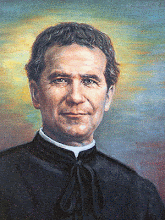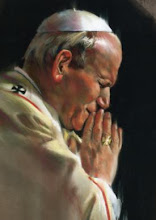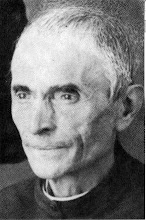Most holy and immaculate Virgin, Mother of Jesus and our loving Mother, being his Mother, you shared in his universal kingship. The prophets and angels proclaimed him King of peace. With loving fervor in our hearts we salute and honor you as Queen of peace.
We pray that your intercession may protect us and all people from hated and discord, and direct our hearts into the ways of peace and justice which your Son taught and exemplified. We ask your maternal care for our Holy Father who works to reconcile the nations in peace. We seek your guidance for our President and other leaders as they strive for world peace.
Glorious Queen of peace, grant us peace in our hearts, harmony in our families and concord throughout the world. Immaculate Mother, as patroness of our beloved country, watch over us and protect us with your motherly love. Amen.
The time has finally come. The next two weeks offer us what is probably the grandest pairing of two planets in our lives. It also is a near-replay of what some scholars believe was the most spectacular appearance of the Star of Bethlehem.
The most important night is June 30, for that is when the two brightest planets, Venus and Jupiter, come closest of all to each other in the sky. They come almost as close to each other next Tuesday as they did on June 17, 2 B.C., when Magi in Babylonia or Persia would have seen the two merge into one single blazing light as the pair descended to the horizon in the exact direction of Jerusalem and Bethlehem.
How close in the sky? Even if next Tuesday night isn't clear, Venus and Jupiter will be amazingly close together for the entire two weeks that start tonight. No close pairing of these brightest planets in our lifetime has been so prolonged. But how close is close, in the sky?
To answer that question, we must talk about "angular measure" in the sky.
Your fist at arm's length is about 10 degrees wide, your thumb at arm's length about 2 degrees wide. Venus and Jupiter are 4 degrees apart tonight. But amazingly, they will be less than 2 degrees apart for eight nights - all the way from this Saturday through the Fourth of July. We'll reveal how close their closest encounter will be later in this column.
When and where to look each day? Look above where the Sun went down each day and you'll see the two planets. Venus is so bright now that you should be able to see it easily with the naked eye even quite a while before sunset, say 8 p.m. Jupiter is less bright, so you may not see it first glimmer into view until about 8:45 or 9 p.m.
Tonight: Look for Jupiter 4 degrees upper left of Venus. By the time the sky is pretty dark - say 9:30 p.m - you also should be able to glimpse a much dimmer object, the star Regulus (the heart of Leo the Lion), about one fist-width at arm's length to the upper left of Jupiter.
This weekend: Venus and Jupiter become less than 2 degrees apart on Saturday. On Sunday evening, by the way, be sure to observe the moon in the southeast with a bright point of light very near it - the planet Saturn. But even better will be Venus and Jupiter on Sunday - just over 1 degree apart.
Next Monday: Venus and Jupiter are now close enough for their globes to be in the same telescopic view. By amazing coincidence, the two globes have almost the exact same apparent size these next few days, when they are closest in the sky. But Jupiter is fully lit while Venus is less than half lit (though far more radiant in surface brightness). If you don't have access to a telescope the days the two worlds are closest in the sky, you can attend the South Jersey Astronomy Club "Skywatch" on July 3 (or, rain date, July 5). This particular observing event will be held outside Egg Harbor Township Public Library at 7:30 p.m. Be sure to check sjac.us for directions and further information, including the weather call.
June 30: The climax - conjunction day. A "conjunction" is a temporary pairing of heavenly objects. On this day of the actual conjunction, the planets are separated by only a third of a degree - that's almost seven times smaller than your thumb held out at arm's length. The two planets, Jupiter just upper right of Venus, will almost appear to have their rays touching on this incredible evening.
July 1: Venus and Jupiter still only a bit more than ½ degree apart.
July 2: Venus and Jupiter 1 degree part and most nearly side by side.
July 3: SJAC Skywatch (see above).
July 4: Planets 1.9 degrees apart.
July 5: Planets less than 2½ degrees apart.
July 6: Planets 2.7 degrees apart.
Fred Schaaf is a local author and astronomer. He can be reached at: fschaaf@aol.com.
Venus and Jupiter above St. Peter’s Dome in Rome on Sunday June 28, 2015. Credit: Gianluca Masi
Venus and Jupiter above St. Peter’s Dome in Rome on Sunday June 28, 2015. Credit: Gianluca Masi



































